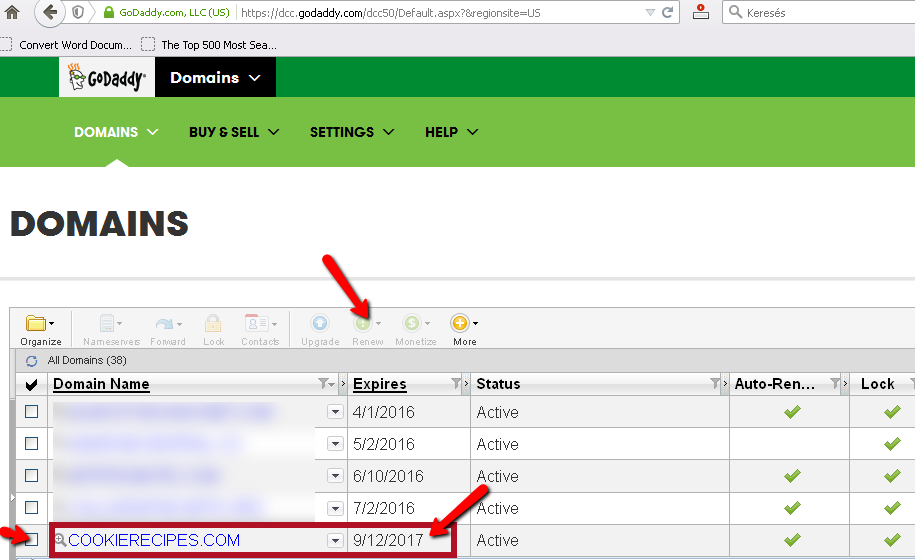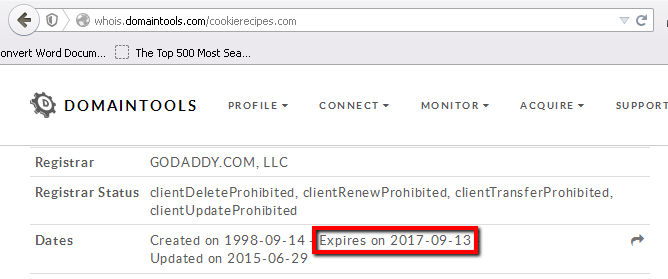Domain expiration is the date when the current owner of the domain will lose his ownership on the domain if the domain is not renewed. There is an additional Redemption Grace Period (about 2 months) when the domain still can be recovered by the current owner.
Domain names are valuable assets and there are multiple interested parties for the same domain name. The general rule is that the one who registered it first will own the domain. Ownership can be changed by several ways: domains can be sold, can be taken away by an UDRP decision or a legal process, or ownership will change if a domain is expired and not renewed.
There are two kind of fees connected to a domain: registration/purchase price and renewal price. While no one likes to pay fees, the existence of domain renewal mechanism is beneficial for both the Registries, Registrars and end users. E.g. .ro was an extension that never expired, which made registering good names in that country almost impossible. Their registry realized the pitfall and changed the rule. Another interesting example is the free .tk domain, which is not just free but never expires. They have a special rule, however, they require 25 unique visitors in 3 months or they can take away your domain! While these were strange exceptions, 99% or more of the extensions have a simple rule: pay a yearly fee and get your domain renewed. Renewal fees are different for different domain extensions. It can be as low as $1 but even costs thousands in case of so called premium names with new gTLD extensions.
How to check when a domain will expire?
Is the domain yours and worrying about it that it will expire soon? The most straightforward way is to login to your Registrar and check it there. As an example find a figure with GoDaddy dashboard showing expiration dates of domains below. Registrars have to send many emails to the Registrant when the domain is going to expire and expired, thus if your e-mail associated to the domain is working correctly, you will not miss the renewal. When the domain has expired you will notice that your website stops working – and it is still not too late to recover your domain.
If this is not your domain but you hope that the current owner will let it expire, you can use a Whois tool, which is also used to reveal who is the domain owner. Maybe you hope that the domain will expire and you can just register it after that date. We have a bad news. In case of a good domain chances are close to zero. In cases of really good domains, be prepared to 4-5 figure prices in these auctions. Check our post how to backorder a domain.
How to renew your domain?
Just login to your registrar and find the renew button. It is very easy everywhere. You can also setup auto-renew functionality, so if you have a credit card or Paypal connected to your account or prepaid money the domain will be renewed automatically for another year. This is the safest method.
You can renew your domain any time, even if there are months or years until expiry. Domains expiration can be extended for as much as 10 years, not just 1 year. Most registrars give a discount when a domain is renewed for such a long term. For valuable domains it is recommended to consider renewing the domain for long term.
What happens if a domain has expired?
Depends. If a domain is valuable for others (has a great name, aged, has backlinks, etc) than there will be backorders on the domain and sold in an auction. If no one is interested than the domain will be deleted and available for registration again. More than 100,000 domains are expiring in a day, and most of them has no market value. If the domain is yours and forgot to renew it, you can recover the domain for 2 months after expiry at your Registrar.


